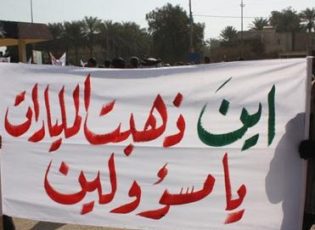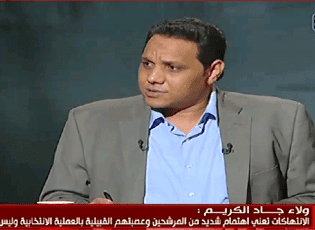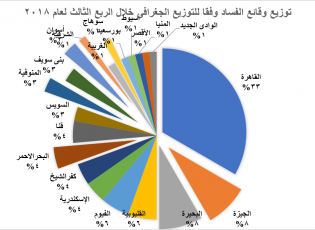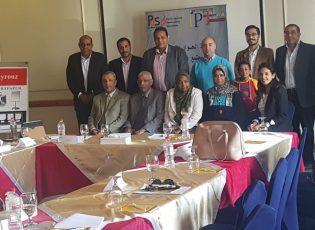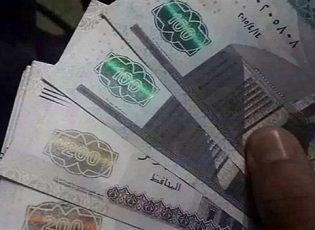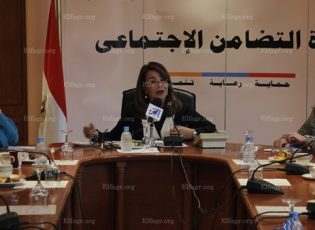Sky Age news
October 15, 2016
Egypt has turned into a hotbed of financial and administrative corruption despite the multiplicity of regulatory agencies, and its access to 36 oversight bodies, yet Egypt is still witnessing many incidents of corruption and wasting public money, and since the success of the January 25 2011 revolution, many old corruption files have been opened, and numbers have been allocated. Telephones to report corruption, but the state’s administrative apparatus has not witnessed any change in this regard.
Anti-Corruption Department
The state also appoints many personalities from time to time to high-ranking positions; Under the pretext of combating corruption, and an informed judicial source at the Ministry of Justice revealed that Counselor Hussam Abdel Rahim, Minister of Justice, will appoint within days an assistant to the minister to manage "anti-corruption", and the announcement of this position is not new; He was preceded by the appointment of Major General Mohamed Omar Heiba, former head of the Administrative Control Authority, as an advisor to the President of the Republic to combat corruption, and the Public Prosecutor issued a decision to establish the Anti-Corruption Office, to attach it to the technical office, and to define its terms of reference in support of integrity and counting corruption crimes.
Eng. Sherif Ismail, the Prime Minister, demanded in a recent cabinet meeting that each minister form a committee under the name of the fact-finding committee. To uncover hotspots of corruption within each ministry, and the important question that occupies the mind of the street: What will these positions add, along with dozens of other bodies that follow the executive authority, at a time when Transparency International revealed in its latest report that Egypt is in an advanced position of the most corrupt countries Rank 88, out of 168 countries in the world.
1102 incidents of corruption
A study carried out by the Partners for Transparency Foundation monitored incidents of corruption during 365 days, starting from July 2015 and ending in June 2016, and during this period the study monitored 1,102 incidents of corruption in state institutions, with 3 incidents per day, and the Ministry of Supply came the most corrupt, and witnessed Only 215 corruption incidents accounted for 19.77% of the total corruption incidents, followed by localities with 127 incidents of 11.5%, followed by Health with 97 incidents of 8.8%, the Ministry of Agriculture with 88 incidents of 7.9%, followed by the Ministry of Interior with 76 incidents of 6.89%. TP1T, followed by the Ministry of Education with 59 incidents of 5.35%, the Ministry of Finance with 49 incidents of 4.44%, and the Ministry of Housing with 36 incidents of 3.26%.
Then comes the Ministry of Communications and Information Technology with 31 incidents of 2.8%, out of the total incidents of corruption witnessed in the last year, the Ministry of Transport with 29 incidents of corruption in the last year, the Ministry of Justice with 24 incidents of 2.17%, then the Ministry of Youth and Sports with 23 incidents of 2.08%, This is followed by the Ministry of Irrigation and Water Resources with 22 incidents, with a ratio of 1.99%, then the Ministry of Social Solidarity with 19 incidents, with a ratio of 1.72%.
This was followed by the Ministries of Petroleum, Endowments and Investment with a score of 18 corruption incidents, each with a ratio of 1.6%, the Ministry of Antiquities with a score of 17 incidents of 1.54%, then the Ministry of Higher Education with 16 incidents of corruption of 1,45%, the Ministry of Electricity with 14 incidents of 1.27%, and the Ministry Culture with 9 incidents with a score of 0.81%, followed by the Ministry of Industry and Trade with 7 incidents with a score of 0.63%, and the Ministry of Environment with 5 incidents with a score of 0.45%, followed by the Ministry of Business Sector and the Ministry of Manpower with a score of 0.36%, as well as the Ministries of Aviation and Tourism with 3 A corruption incident of 0.27%, and finally the Ministry of Urban Development with one corruption incident out of 1,102 incidents of 0.09%.
12 incidents of corruption in the regulatory agencies
The disaster is that corruption affected the regulatory agencies themselves, as the study reveals that the regulatory agencies witnessed 12 incidents of corruption at a rate of 1.08%, while the Presidency Institution had a share of 7 incidents of corruption at a rate of 0.63%, and the Presidency of the Council of Ministers had 6 incidents of corruption at a rate of 0.54%, until Parliament witnessed 10 incidents of corruption with a percentage of 0.63% 0.90%, which is the same rate of corruption in the Radio and Television Union, which also witnessed 10 incidents of corruption.
Of the 1,102 corruption incidents, 728 are under investigation (with a score of 66%) and 173 incidents are under trial (with a ratio of 16 %), 144 incidents have yet to be investigated (13TP1T score), while 57 corruption incidents have been adjudicated (with a ratio of 5%).
The study reveals that January 2016 recorded the highest rate of corruption incidents with 138 incidents, immediately followed by February of the same year with 112 incidents, then August 2015 with 104 incidents, and May 2016 with 101 incidents, while October 2015 was the lowest with 60 incidents. The Ministry of Supply had the largest share of corruption incidents during the month of July 2016, with 15 incidents of corruption out of a total of 64 incidents, followed by the Ministry of Agriculture with 10 incidents of corruption, followed by the local sector with 9 incidents, followed by the health sector with 8 incidents of corruption, then came the two ministries of Electricity Justice has 3 facts each.
Cairo occupies the largest share in corruption
Regarding the geographical distribution of corruption, the study says that Cairo governorate occupies the largest share of corruption incidents during the month of July 2016; Due to the centralization of its administrative headquarters, where it received 23 incidents of corruption, followed by Sharkia Governorate with 5 incidents of corruption, followed by Minya and Sohag governorates with 4 incidents each.
The president sets out ways to fight corruption
Since Muhammad Omar Haiba was appointed as an advisor to the President of the Republic for "fighting corruption", he did not appear to have any role in this regard, and he did not come out to present proposals and ideas to develop the anti-corruption system in general, but he touched on all occasions to direct recommendations and demands to the authorities to combat Corruption is in many ways, and the advisor did not appear on any of these occasions until his name was not mentioned or frequently reported, which made him unknown in the media. As proof of this, the President ignored the role of his advisor; Al-Sisi went out on May 12, 2015, to announce that confronting corruption will take place through two axes, the first: the security confrontation and the prosecution, and the second axis: launching a package of legislations and laws and turning to modern technology without reference to the advisor's efforts or seeking his opinion to make it clear that the president is the ultimate in command in Like this aspect.
The president insists on all occasions to refer to this aspect, as he always repeated that “corruption is not limited to stealing state funds, but rather in other manifestations such as unjustified extravagance, so he took the famous initiative to rationalize the manifestations of extravagance in the government apparatus”, and issued His directives to the Ministry of Interior to perform its role by dismantling any gangs that trade in the people's sustenance, and in all these situations he did not refer to the institution or the advisory body that he established.
Despite the multiplicity of regulatory authorities in Egypt, indicators of corruption crimes within the state's administrative apparatus are increasing significantly. According to the report of the National Anti-Corruption Commission, there are 65,000 corruption cases that the administrative prosecution receives every year, in relation to the state’s administrative apparatus, meaning that there are 65,000 corrupt Egyptian employees every year, and the disaster is that corruption has reached the presidency and the Council of Ministers! There are 28 ministers who must be removed from their posts due to the multiple discovery of corruption cases in their ministry. Public money has been bleeding since 2000 trillion pounds, which has been swallowed up by corruption and corrupt people, and during the last year the ministers, "Salah Hilal" and "Khaled Hanafy", resigned from the government, on the background of accusations of corruption, The first of them was referred to trial and imprisoned, minutes after his resignation, and the second is still waiting.
The absence of the role of Parliament
Haitham al-Hariri, a member of Parliament, said that the reason for the ineffectiveness of the official regulatory bodies in Egypt is mainly due to the fact that they completely lack independence in light of their direct subordination to the executive authority, indicating that the multiplicity of regulatory agencies and the overlapping of their competencies affects the confrontation of administrative corruption, and each party Of the supervisory authorities that exercise their control without coordination with other authorities, in addition to the remarkable absence of parliament in the face of administrative corruption.
"Hariri" affirmed that all the regulatory agencies recently announced do not have any noticeable role in confronting corruption within the state, and they are content with speaking to the media without presenting a clear plan that reveals the future state plan to eliminate corruption permanently.



